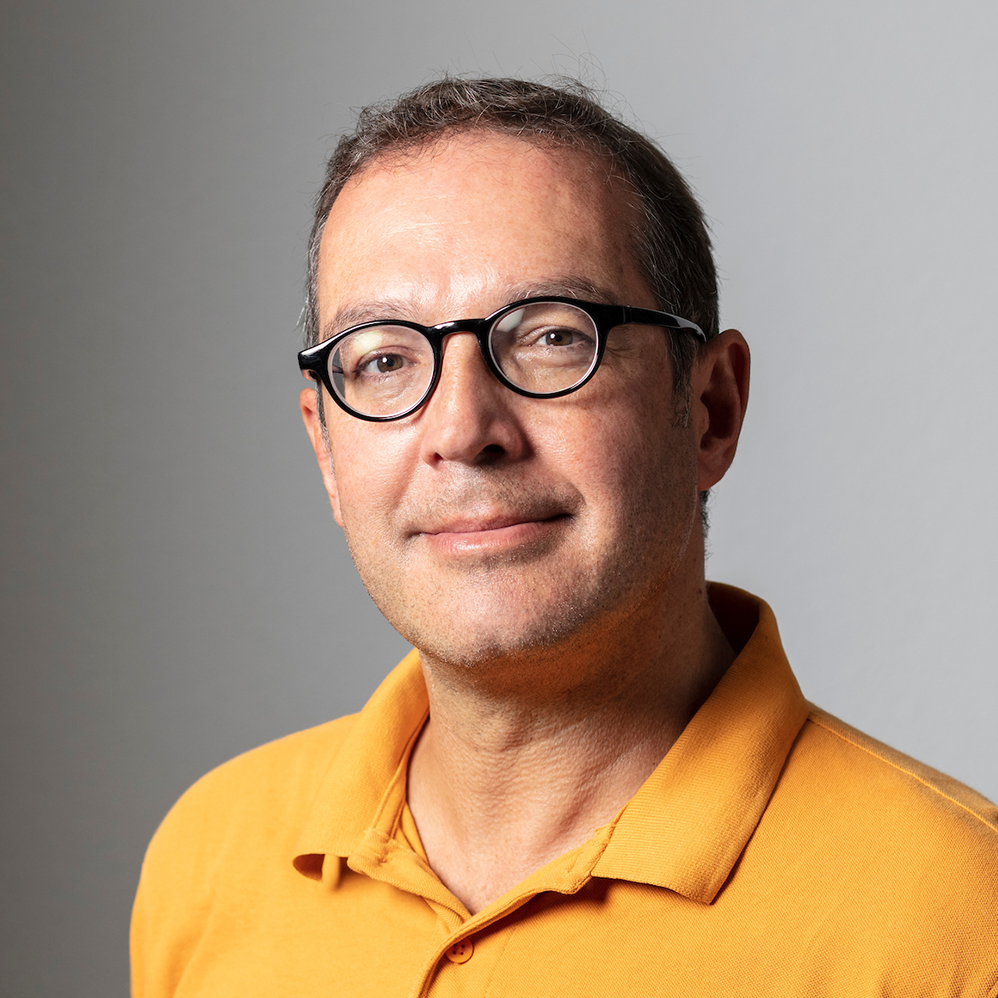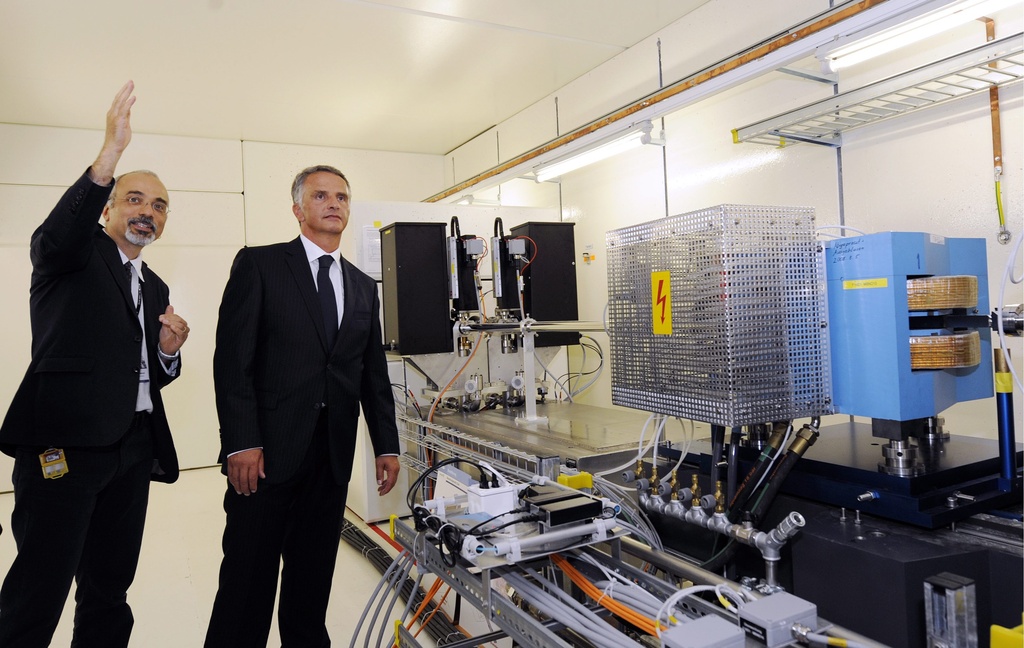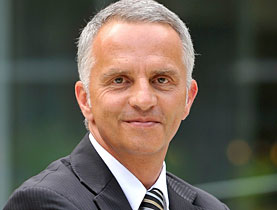“We must participate in global solutions”

Interior Minister Didier Burkhalter says the visit by a group of Swiss health and science experts he led to Brazil confirmed its emerging importance in the sectors.
Burkhalter talked to swissinfo.ch at the Oswaldo Cruz Foundation research centre in Rio de Janeiro at the end of his six-day visit to Brazil.
His trip aimed to strengthen Swiss science and health cooperation with Brazil. The country belongs to the group of eight non-European countries, including India and Russia, that Switzerland considers a priority for closer ties.
swissinfo.ch: What are your impressions from the visit?
Didier Burkhalter: It’s been very intensive – it seems like I’ve been here for a year. But seriously, the feeling was that we were among one of the giants of this world – a huge country that has tremendous potential and is really growing among the so-called emerging countries. In the coming years Brazil will play a crucial role in terms of science or health. It was very important for Switzerland to be present here.
swissinfo.ch: You were travelling with a large delegation of specialists. What was the aim?
D.B.: The delegation was strong because I believe Switzerland can score points abroad in its relations with the rest of the world if it puts forward what is does best.
Our country is good at science, technology, innovation and finding solutions. The aim was to build this into a strategic partnership with Brazil and then link in the other topics where there is perhaps less agreement.
Of course, Switzerland has nothing to hide. We were defending our interests, but interests that are connected to global issues, where we also want to have an impact.
The world, not only Switzerland, is being confronted with major problems that include the environment, energy and health. For that we must participate in global solutions.
swissinfo.ch: What definite proposals did you make?
D.B.: The [Swiss-Brazilian] cooperation agreements, including specific projects, have worked very well. We’ll probably renew them soon with a new request for projects.
We may also decide to open a Swissnex office in Brazil if we feel it’s necessary [centre that encourages cooperation between public-private partnerships in areas of science, education, art and innovation]. This will be studied in the coming years.
There are five Swissnex in the world, including two in the United States, and one in India, China and Singapore.
swissinfo.ch: Is Switzerland seeking support from Brazil for its candidacy to join the World Health Organization (WHO) executive committee?
D.B.: No, Switzerland does not need Brazil for that, as European countries will vote on the Swiss candidacy.
If or when we are on the WHO executive committee – a decision to be taken next month – we wish to see a WHO with more transparent governance, an organisation that prioritises its health activities and clarifies its relations with its partners, including the private sector, that is basically more effective.
For that to happen, we realise that we have the same position as Brazil. So we are not seeking support for the Swiss candidacy but instead support for a global health initiative that is favourable to Switzerland, Brazil and others.
swissinfo.ch: What did you learn from comparing the two countries’ health systems?
D.B.: It is obvious that in the context of the H1N1 [flu] vaccination campaign in Brazil there was a public openness to it, which did not happen in Switzerland. If we look closely at this, there may be something to learn. But I’m not sure that we can apply the Brazilian methods back home.
I would not swap the health situation in Switzerland with that of Brazil. We live in a country where the health system is expensive but excellent. Brazil is a large country that is emerging and growing, but which still has enormous problems.
We travelled through the favelas [slums] to this research centre. After only a few kilometres you could see the huge disparities in health, education and training.
Health costs will continue to increase in Switzerland. We simply have to try to keep them under control. As we always want greater quality and better treatment and the best situation in the world, there will always be a pressure towards higher costs. What is unacceptable is when this increase does not always result in better quality.
That is what we have to work towards: greater efficiency and better treatment without greater costs or unnecessary use of drugs. What’s especially important is better coordination of treatment, which explains the managed healthcare project for which we are seeking parliament’s support.
Alexander Thoele in Rio de Janeiro, swissinfo.ch (Translated by Simon Bradley)
Brazil is one of eight non-EU priority countries, with which Switzerland wishes to broaden and deepen bilateral scientific ties.
State Secretary Charles Kleiber led an exploratory mission to Brazil in May 2007. Brazilian Science and Technology Minister Sergio Rezende led a high-level scientific delegation to Switzerland on September 28-29, 2009, during which he signed a bilateral research cooperation agreement and action plan.
Brazil has one of the highest annual growth rates in terms of the number of scientific papers published – up 10.4 per cent from 2000-2006 – behind China, Turkey, South Korea and Taiwan.
Priority research fields 2008-2011: neuroscience, health, energy and environment.
A first call for joint research was issued on November 13, 2009 by Lausanne’s Federal Institute of Technology (EPFL) and Brazil’s Council for Scientific and Technological Development (CNPq). Of the 20 proposals received, ten were awarded grants worth SFr3.5 million ($3.4 million), mainly for neuroscience and health.

In compliance with the JTI standards
More: SWI swissinfo.ch certified by the Journalism Trust Initiative














You can find an overview of ongoing debates with our journalists here . Please join us!
If you want to start a conversation about a topic raised in this article or want to report factual errors, email us at english@swissinfo.ch.